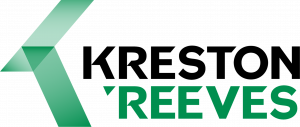Tom Pearce wanted to work as an accountant in an industry in which he was interested and one where you can see the end product. He now works as Finance Director at Nintendo UK.
Working for Nintendo sounds like a job most students would dream of. How is it in reality?
There is no question that it is a very exciting company and industry to work within. Being at the forefront of the video games industry, Nintendo is a company which has changed dramatically over the years and which to be involved in, has been a real thrill.
Certainly it has its perks, like having access to seeing our games before launch, however I’m afraid this doesn’t constitute playing them all day! The industry is an ever changing and vibrant business and what I particularly enjoy about Nintendo is that not only do we generate the largest turnover of any of the other European markets, but that we have managed to do this with a relatively small team of staff (NUK is 35 strong).
It is a great setting for me to be able to apply my head for figures within a company which I have a genuine interest in. I have learnt a huge amount about not only the industry in the time I have been with Nintendo, but also about the commercial world and how it operates.
Working within a business like Nintendo and with the position I am in it is important for me to strike the right balance between keeping those cost centres such as marketing ‘in check’, whilst at the same time have enough activity to back up the sales department in an effort to maximise profit.
What are the day to day tasks that you are involved in?
I head up a team of seven staff who handle the finance, commercial and customer service functions of the UK operation. We are responsible for the handling of all orders placed by our customers and in the shipment of stock to the trade. Essentially the bulk of the UK’s reporting requirements will come from within my department – this would include sell-through reporting (both of our product as well as the competition), stock reporting, customers’ sales performance and all budgetary reporting.
I am also part of the senior management team taking decisions on the strategic direction of the business such as pricing, trading and marketing strategies for the business.
What made you want to get into management accountancy?
During my degree I took a year out and worked in London for an insurance firm to gather some business experience. From that time I knew I wanted to apply my accountancy skills to a commercial setting rather than go into practice for example. I wanted to be in a situation where I was employed in a business that interested me and where I could see the end product. I didn’t like the idea of being stuck in a back office or working within an industry which I had no passion for.
What was your first job when you left university?
My first role was as the commercial assistant with MVC (Music and Video Club). This gave me my first insight into the entertainment industry. I remember as part of the induction programme I was asked to work in-store for a week to understand from the shop floor how the business operated. That helped me understand the business from the ground roots and gave me initial ideas on for example, some of the reporting requirements which could benefit the company.
When did you start thinking about getting professionally qualified?
Once I had started my degree at university I heard about CIMA. Then, during my year out from university working London, there was someone there who was studying CIMA and I thought about it further (I realised that this was a qualification that was widely recognised). The first thing I did was to tell my employers (MVC at the time) that I was going to do CIMA one way or another. They were good enough to give me some financial support.
How did you find the CIMA training?
I qualified in 2001 and over the years it was quite hard work. That’s something I’m keen to address with members of staff now. I’m more than aware how tough it can be to hold down a demanding job and study on top of that. But it’s worth it in the end. Being a CIMA member opens up a lot of doors for you. As far as my own career was concerned it really gave me the boost I needed. Qualifying was a significant milestone for me.
Do you take part in any CPD?
Since 2006, all CIMA members are required to take part in their CPD programme. Sometimes it can be difficult to focus on your CPD when you’re so involved in day to day business but it’s also really important that you take the time to ensure that you are up to speed with developments in financial management and that you step back and look at your own career progression from time to time.
Are there any particular achievements that you are proud of?
Looking back over the years and since the start of the UK branch in 2001, I have been particularly proud of playing such an integral role in the initial branch set up – from the processes that had to be generated to essentially the setting up of the finance team/department to where it is today. It was a perfect opportunity to gain invaluable commercial experience. Of course my promotions throughout my career (and in particular mostly recently to FD here at Nintendo UK) have been very proud moments for me also.
However, what I would consider still to be my biggest achievement would be qualifying with CIMA – it is something which took a great deal of effort and dedication but one that paid off in the end.
Do you have any advice to a new graduate wishing to join your profession?
Think hard about whether you want to work within a commercial environment or within practise. Once you have decided the route to take, then focus and dedicate your time to obtaining your accountancy qualification. As I made the decision fairly early on that CIMA was the route I wanted to take (being more commercial/business focused) I then chose an industry that I have some interest in. I think it is far more motivational on a daily working basis to be around figures which have real meaning to you.
Get involved in as much of the business as you can. Regular exposure to departments such as sales and marketing are not obvious areas for an accountant to be involved in, however they are vital if you are going to have a real influence on the decision making process. It will also help you to have a better understanding of the business and will allow you to be more proactive in terms of how the finance department can assist the rest of the business.
One real positive about the CIMA qualification is the fact that in my experience and with the people I have been exposed to in my career, it is not only recognised by other accountants/finance related staff, but also other staff (i.e. non accountants).
What do you think is the biggest myth about accountancy?
That it is a boring profession and backward looking! Quite the contrary if you can position yourself within a business where you are part of the decision-making processes. Business will also look to the finance function to provide guidance and fact based analysis to assess the performance and analyse the future.
What qualities do you think are needed to succeed in your profession?
- Technical acumen
- Dedication
- Professionalism
- Ability to relay both verbally and in written form, financial information to non-financial people often at a senior level
- Be forwarded thinking.
Parts of this article first appeared on the CIMA’s website





